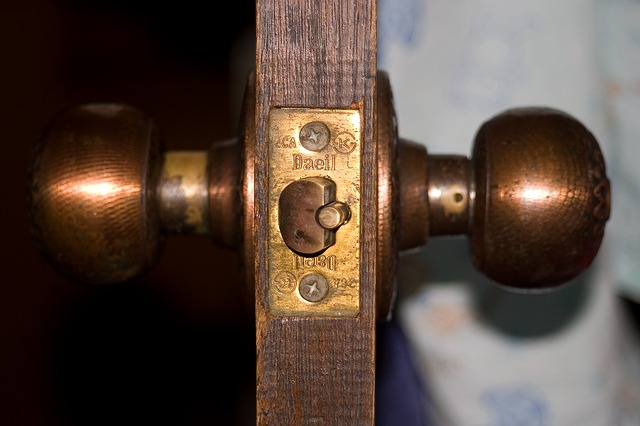If you are a first time buyer or even if you have bought or sold a house before, conveyancing might be a bit of a mystery to you; something you have to do which involves carrying out various registry checks and ensuring the contract is sound.
This is your chance to find out what conveyancing is and, more importantly, why you need the service.
Conveyancing is the legal process which governs the transfer of property from the buyer to the seller in a property transaction. This process begins once the seller accepts an offer on the house and ends when the keys are finally handed over to the buyer.

If you are buying a house, you are permitted to deal with the conveyancing yourself provided you are not taking out a mortgage on the property but unless you really know what you are doing, we don’t recommend this. It is time consuming and there are pitfalls along the way. It is better to leave it to the professionals. Suitably qualified solicitors or conveyancers will know the process back-to-front and will have the necessary experience to deal with any issues that crop up.
Make sure you know what you are buying before you even think about hiring a conveyancer. That means a thorough inspection of the property when viewing it.
If you are selling your property, you can save time by finding the right conveyancer or solicitor in advance although. Then you can instruct them once you have accepted an offer from a buyer. Your solicitor or conveyancer will ask you to fill out several questionnaires. These are designed to gather all the information required to draw up a draft contract which can be sent to the buyer’s solicitor for approval. The information gathered will cover:

Vendors are personally liable for the information they supply using these forms. If it is later discovered, after completion of the sale, that the questionnaires have not been filled in truthfully, sellers leave themselves open to a compensation claim.
On the other hand, if the buyer discovers the information is incorrect before exchange of contracts, they will possibly lose faith in the vendor and the transaction will fall through. We advise sellers to be as honest as they possibly can and if they don’t know the answer to a question, just say so.
The seller’s solicitor or conveyancer will use the information provided in the TA forms to draw up a draft contract. This is sent to the buyer’s legal representatives along with other items such as the property’s title. The draft contract forms the basis for negotiations to begin. Issues for negotiation include:
If money is still owed on the property, the seller will need to request a redemption figure from their mortgage provider. This is the amount they have to pay upon completion of the sale.
Unless they are making a cash purchase on the property, buyers need to have a mortgage in place for the transaction to happen and this will include having the financing available for a mortgage deposit. When a lender makes an offer, their solicitor or conveyancer will receive a copy of the mortgage offer to scrutinise the terms and conditions.
Mortgage lenders will require a mortgage valuation so they can be sure the property will provide sufficient security against the amount being borrowed. This is usually paid for by the buyer but sometimes the lender will include it as a free gift.

The mortgage lender will also require the buyer to take buildings insurance before an exchange of contracts can take place. This is in the buyer’s interest as well as the lenders. After all, owning a property is a big responsibility which may span many years.
The buyer’s solicitor or conveyancer will examine the draft contract and supporting documents. If any issues scream out at them immediately, they will raise them with the seller’s legal team. Assuming everything looks alright on the surface, they will encourage the buyer to go through the material with a fine comb to see if they have any queries or concerns.
The buyer’s main concerns should be:
Buyers may also be advised to carry out specific location searches, as part of the environmental search, such as tin or coal mining searches. Understanding the geology of the area can help to determine the possibility of sinkholes among other things.
The information provided by the seller in the TA forms will be comprehensive but the buyer may have other questions they want to ask such as additional Local Authority questions relating to public paths, pipelines, noise abatement zones or common land for example.
Before the buyer can sign the contract, any issues arising from the draft document need to be ironed out and the conveyancer will make sure that all the necessary checks have been carried out on the property.
If the buyer has obtained a mortgage for the purchase, the deposit will need to be in their solicitor’s account in good time for an exchange. The deposit is usually around 10% of the value of the property. Sometimes a smaller deposit is negotiated but buyers need to be aware that if they pull out of buying the property after the exchange of contracts they will still be liable to pay the 10% deposit in full.
Buyers are also advised to pay a final visit to the property with the estate agent before the contracts are exchanged just to make sure everything they are paying for is still there and the house has not been damaged in any way.
![]()
Buyer and seller agree a date and time to exchange contracts but the actual exchange is handled by their solicitors or conveyancers who usually carry out the exchange, reading out the contracts to each other during a recorded phone call. This phone exchange is just a preliminary procedure to ensure both copies of the contract are identical so things can move forward. Once this has taken place, the legal representatives send their hard copies of the contract to one another by post.
If there is a chain, then the buyer’s conveyancer or solicitor will only release the contract if the other people in the chain are all happy to go ahead. All it takes is one person in the chain to pull out or delay and this has a knock effect for everyone else.
Once the contracts have been exchanged, both buyer and seller are legally bound to the property transaction by contract with a fixed date for moving. From this point:
Once the contracts have been exchanged, the buyer’s solicitor or conveyancer will have lodged an interest in the property. From that moment, the deeds to the property will be frozen for 30 working days to allow the buyer to pay the seller and lodge their application to the Land Registry to transfer the deeds into their name.
Buyers are advised to make sure the balance is paid into the seller’s conveyancer’s account at least one day prior to completion date just to make sure it is cleared and visible.
Sellers need to vacate the property before completion date which could be any time from the same day to several weeks away.
This is a big day for everyone, especially the buyer.
Completion is usually officially set for midday on the specified date although in practice this time is nominal. In reality, completion takes place when the seller’s solicitor or conveyancer confirms that they have received the outstanding balance on the house. They then drop the keys off at the estate agents for the buyer to collect.
![]()
Following completion, the buyer’s solicitor will need to tie up some loose ends such as paying Stamp Duty Land Tax if applicable. They will inform the Land Registry of the transaction and, where a mortgage lender is involved, a copy of the title deeds are sent to them to hold until the loan is paid off.
The freeholder has to be notified if the property is a leasehold.
Finally, both buyer and seller will receive a final invoice from their solicitors or conveyancers and the seller will also need to pay their estate agent.
One thing that is overlooked by people when they move house is letting others know their new address. We produced this quick guide to make sure nobody important is left out of your list.
What now?
Buying or selling a house is major transaction so it is best to get it right. We are here to ensure the process runs smoothly. If you are about to enter a property transaction, get in touch today so our experts can assist.